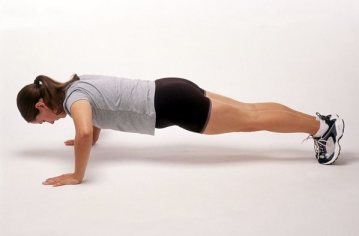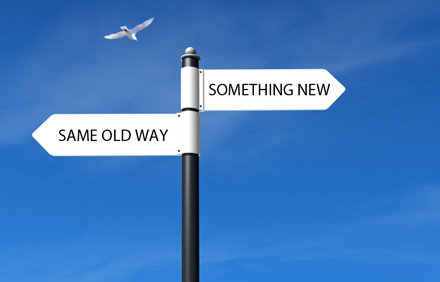Category Archives: Optimal Health
Blog Posts relating to Optimal Health and Preventive Medicine.
Taking a time out to reflect on your overall wellness
Can you believe we are already in March 2014!! Time seems to goes so fast. Especially, the busier your lifestyle, the faster it seems to go.
So with 2 months of the year done and dusted, it may be a good time to take a time-out and evaluate how you are tracking towards your 2014 health and wellness goals, and consider whether a change in strategy or game plan is needed!
Some of the metrics that you could take some time to reflect on are:
- Healthy daily habit formation – By far and large, what ultimately defines how you look and feel is what you do on a daily basis. Your routine. The stuff that you do every day easy to do, but also oh so easy not do to. We are talking about your eating patterns, your exercise /activity, how you sleep, your mindset, your stress and happiness levels.
- Investing in your health– Do you supplement? Do you invest in maintaining you mental well-being and positive mindset. Simple investments of time can include things such as taking a short holiday break to recharge the batteries, saying affirmations and reading self improvement books . A fantastic smartphone app that I recommend is called Positive Thinking – it sends a daily stream of positive images and affirmations.
- Working with a goal – Have you set SMART goals for 2014? Are you working towards something that is meaningful, specific and timely? Have you set a reward for achieving your goals each step along the way?
- Investing in help – We all have times when things are not working, when times get tough and we feel like giving up. But it is what you do and how you react during these times that defines you as person. It’s okay to admit that you need some support and guidance to get you back on track. A coach (be it a peer or a professional) can help you improve your self-awareness and partner with you to set a realistic plan of action that empowers you to get back on track.
Hopefully some of the above, has either affirmed that you are on track with your wellness journey and goals or has jolted you for a moment to stop and reconsider whether a change of course is needed. We are either moving away from or towards what we want. One small change in direction one way or other can end up in dramatically different results at the end of the day.
Restoring Discipline with your Health
The word discipline is a word that gets thrown around alot in health, fitness and weight loss circles now-days, but what does being disciplined really mean?
The dictionary meaning of the word discipline means: “Training expected to produce a specific character or pattern of behavior, especially training that produces moral or mental improvement “. Discipline can mean different things to different people. My personal favourite is “Discipline is doing what you don’t want to do, when you don’t want to do it”.
Staying disciplined is hard! When we set out to achieve a goal or even maintain what we have, it requires sacrificing things we love and sometimes going against the grain. Temptation, distractions and obstacles are everyone around us, as well as social and family pressures. If your friends are all doing one thing , and you want to do another, what choice do you make? There is always going to be friction and tough choices to make. Do you “jump on the bandwagon” or stay true to yourself?
If you take an honest look in the mirror (both literally and metaphorically), it is easy to establish if you are disciplined or not with your lifestyle patterns of behaviour. Too often,its so easy to pass the blame and make excuses like “that health program doesn’t work!”. No, that program does work, its that you haven’t worked the program!
There is a reason that over 60% of the population is overweight. Pure lack of discipline and control! We all have the best of intentions but to actually act on those intentions with our busy lifestyle, and then follow through on a consistent long term basis (rather than it being a ‘phase’)….that requires discipline. That is a big part of why you should consider investing in a personal trainer or health coach – that extra bit of accountability and push from someone else can make all the difference in helping you to staying disciplined with your health and fitness.
Developing new habits for a new year
The power of daily habits should not be understated. Habits can quite literally either make or break your life. The results you achieve are a direct results of your habits!
Your lifestyle habits play a major part in whether you are to be successful at achieving your health, weight loss and wellness, as well as other life goals. This is well described in Stephen Coveys, 7 habits of highly effective people.
Once habits are formed and ingrained into our lifestyle, they become second nature – something you don’t have to think about. They say it takes 21 days for a new habit to form. That’s almost 3 weeks of trying to do an activity or task that most probably unnatural, something that you have to think about and put effort into. In some cases, this may be something that you don’t enjoy doing. Take for instance ones sleep patterns. As you know, Sleep is a crucial component of ones health and well being. For someone who is used to staying up late, and then asking that person to start going to bed earlier, there is always going to be an initial resistance and inertia to overcome in order to firstly start this new pattern, and secondly maintaining it consistently without deviating night after night. Wow – talk about doing it tough!
So with a new year, 2014, just newly upon us, its a perfect time to have a think about your habits. Which ones help you, and are worth keeping, and which ones are counterproductive to the full fulfillment of ones goals and progress with your health? Once you have worked this out, this puts you in a great position to start devising some strategies and a plan-of-action, to help develop new habits in order to get new and enhanced results.
Setting Healthy New Years Resolutions
2014 is almost here, and as the last few weeks of the year wind down, why not take some time out to reflect on how you went in 2013 and what you can achieve in 2014?
Here are five pointers to help you set goals and get into motion moving forward into the new year:
1) Start NOW
Instead of waiting for the clock to strike 12 on the 31st of December, why not at least start getting mentally prepared for what you want to achieve and what activities and commitments it will take to reach your new years goals?
Reading a book about general goal setting, or about health and wellness is a great way to stimulate your imagination, and learn new ways of thinking. When you read it isn’t you talking to yourself. Rather someone else, normally an expert in their field is talking to you. Sometime we can be conditioned or ‘trapped’ into thinking a certain way, and especially if you not happy with you went with your health and well being endeavors in 2013.
A fantastically simple, but yet so powerful book, we at EH&B recommend is “The Slight Edge” – by Jeff Olson. The bottom line of this book, is there are NO magic bullets to achieving optimal health.
2) Set realistic goals
Setting unrealistic goals is one sure fire way to get discouraged and give up. Sure, you may have big dreams, and big goals, but it can be all too easy to get overwhelmed when the going gets tough and you have a huge mountain to climb. Instead, why not set a goal that you believe you can achieve but is still a challenge, and also set a stretch goal to aim for if you are really wanting to push yourself to the limits. For example, for someone who sets a goal to run a marathon, why not start with setting a goal to first run a half marathon?
3) Baby Steps
Once you have set a goal that you believe in your heart that you can achieve, break down your goal into small, bite size chunks or modules that can be achieved we regular consistent effort. Doing the small, basic steps consistently over time is the key to reaching your goals. The trouble for most of us is, what is easy to do, is just as easy not to do!
4) Set a Reward
Human beings by nature either seek the pursuit of pleasure or the avoidance of pain. Think about how good it will feel when you achieve your goal, and what the prize will be for getting there. Choose a reward that is worth fighting for, something that is extra-ordinary, and something that you will motivate to keep going get times get tough. Only you know what this is.
5) Find an accountability buddy
Its all too easy to let ourselves off the hook. But when we have someone (like a friend, family member or health coach) who you have given your word to, you are more inclined to not give up and do what needs to be done to reach your goal. What makes things even more powerful, is when you both have set similar goals and are BOTH keeping each other accountable. This introduces a social and fun aspect too! With the array of consumer health gadgets out there it is easier than ever to track and monitor each others daily activities remotely.
Here’s to an Exceptional 2014…best of luck in reaching your goals!
Getting back to basics with your health
With so much information and choices available online about health it can be easy to suffer from information overload and get confused when it comes to what choices to make to achieve your health and wellness goals.
You may be asking yourself questions like:
– Whose advise should I follow?
– What diet, activity, approach or method will work for me?
– What is the best way for me to achieve my health and wellness goals?
– What are the best products or services to consume in line with my budget and family circumstances?
Added to this, there is often no agreement amongst health professionals and consumers alike on the best practice, with many differences in philosophies and research data often contradicting each other.
Despite this, there does seems to be a common consensus on what lifestyle habits constitute basics health and wellness. Its not rocket science either. The basics of quality nutrition, staying active, getting adequate sleep, managing stress, minimizing toxins (drugs, alcohol), are both easy to do but at the same token easy not to do.
To achieve sustainable results and success with your health, requires ongoing dedication and making basic, small choices regularly. These all compound over time in either direction. Unfortunately, there are no easy or quick fix shortcuts to success. Like anything worthwhile in life there is a harvesting phase after the initial seeds are sown. This requires having some ‘blind faith’ that if you keep doing the basics, you will see the ongoing results you deserve. This is many ways no different to sowing a seed in the ground, watering and nurturing the soil ever day. It takes time for a beautiful flower to grow.
With this sentiment in mind, why not set a goal for 2014, to get back to the basics with your health?
Measuring and Tracking Your Lifestyle
With the digital age we live in it is easier today, more than ever, to get feedback on how you are tracking towards achieving your health, activity and weight loss goals. We all have a good intentions to regularly check the status of our weight and activity levels, but with our busy lifestyles it can be easy to forget. These devices really do make things easier by automatically collecting data what we are up while we are awake and asleep.
Take FitBit for example, they have a whole ecosystem of smart devices and web/mobile applications that allows you to track and monitor your weight (with smart scale), your sleep, activity level, calories burned (using their wrist bands). The greatest thing about these devices is that you set them up once, and they automatically log your normal activity, whilst sending the data to cloud for you or your coach to view later.
They say what measures, improves. The need to track and measure our activity is especially apparent we have commenced a weight loss journey or for basic weight management. These types of digital fitness devices take the guesswork in terms of tracking and monitoring towards a achieving your a minimum daily exercise goal of 10,000 steps. For those in occupations, that are fairly sedentary, this can be a challenge, however, by knowing your step count, you can be deliberate about the small choices you make, all of which ad up to surprisingly large amounts. For example, you can take the stairs instead of the elevator, park further away from your work building, take mini-breaks to walk to the kitchen, things like that.
Sleep, is also a very important lifestyle factor that can be measured and tracked over time using one of these devices. They can tell you both the quantity and quality of your sleep, and knowing this and relating back to how you look and feel allows you to make decisions and changes like changing your environment, what time you go to bed, or whether you may be suffering from a sleep disorder, such as sleep apnea, which is fairly common.
Nutrition is a vital element to your lifestyle that can be challenging to track and monitor. There are a whole host of applications and some devices such as Fit Bit, that provide useful nutritional information or allow you to manually enter and keep track of what you are eating but this is not practical for most people. It will be interesting follow the progress of up and coming devices such as Airo, that claim to be able to automatically measure and record what you are eating. This will be a real breakthrough.
Collecting health and lifestyle data is great, but its what is actioned and done with that data to make decisions is what really counts. Your health coach can help to interpret your lifestyle data and give you important insights and feedback on how you are travelling. You can then work with him/her towards making decisions and setting goals to move you towards achieving an optimal state of health and wellness.
Why choose an organic multivitamin
The term “organic” seems to be thrown around quite freely nowadays.
But what does organic really mean for you and your health? Is it just “marketing hype”? And why choose a certified “organic” multivitamin over a regular multivitamin?
Organic products traditionally refers to being sourced from pure, natural sources (from nature), with no synthetic preservatives or additives.
An organic multivitamin refers to an multivitamin in which the extraction of the material of the vitamin, is from seed to the supplement is natural, free of use of pesticides or herbicides.
Most vitamin companies manufacture their vitamins synthetically, producing many vitamins and minerals at mass quantities in test laboratories and manufacturing facilities. This allows them to produce large quantities at low cost, improving their profit margins. The problem with these products is, yes, they do contain the pure vitamin content that our body requires (eg: pure ascorbic acid or Vitamin C), but absorption is a problem. The body has smart mechanisms of knowing if something is from nature or is synthetically produced, and tends to reject or not absorb as easily vitamins that are produced synthetically. This means the vitamin tends to go straight through you, leading many to refer to supplements as “expensive urine“.
With an organic multivitamin on the other hand…because of the natural, purity of its contents, the body cannot tell the difference between the supplement and the equivalent fruits and vegetables containing those vitamins and minerals. Hence, the body will absorb the multivitamin like if would had you eaten fruit or vegetable from the ground and thus derive the full nutritional value. The other important factor of an organically sourced mutivitamin/multi-mineral is that due to organic farming process, the phytonutrient content is preserved. Phytonutrients, are plant compounds, that have been shown to be important anti-oxidants and the research into their immense benefits is only slowly begging to emerge. Here is an example of a company that has been around for over 70 years and is the only global vitamin and mineral brand to grow, harvest and process plants on their own certified organic farms
Although organic multivitamins are slightly more expensive than regular multivitamins, what is the price of your health and wellness?
Body Composition & Your Health
I recently took a body composition analysis, and it provided quite a bit of insight into the state of my health. I was quite impressed in how a quick and cheap test like this could provide such wide variety of useful metrics.
So what exactly is a body composition analysis?
A body composition analysis is a non-invasive analysis that provides a number of different health assessment results. These results provide a profile of your current body composition health status, which aids in helping identify areas of your lifestyle that may need modifying.
Here are the different metrics that are provided when you take a body composition analysis:
1) Body Mass
This is a standard measure of your body weight (in kg or pounds), which is normally obtained if you keep a weight scale in your home.
2) Body Fat Percentage
This is a measure of the amount of body fat as a proportion of your body mass. A certain amount of fat is essential to maintain bodily functions. However, an excess level of body fat has shown to increase the risk of certain chronic conditions (such as high blood pressure, heart disease, diabetes and cancer).
3) Basal Metabolic Rate
Your BMR is a minimum level of energy your body needs to function effectively while at rest. This includes the energy required to maintain function of the respiratory and circulatory organs, nervous system, liver, kidneys, skin and muscle. About 70% of calories consumed each day are used for your BMR, and more energy is used when undertaking any form of exercise. The factors that influence your BMR include age, genetics, weight, body fat percentage, diet and exercise.
4) Hydration Level
This is expressed as total body water percentage, which is the total amount of fluid in your body as a proportion of body weight. Water is essential for our body for a number of reasons.
4) Visceral Fat Rating
Visceral fat is the fat located within the internal abdominal activity (around your stomach and waist). People with high levels of visceral fat are more at risk of chronic disease. As people age, the distribution of body fat is likely to shift to the abdominal even if the individual maintains a constant body weight and body fat percentage. It is possible to have a low total body percentage and high visceral fat rating. Males are more likely to have a a higher rating than femals, however, the gap between genders diminishes for post-menopausal women.
5) Bone Mass
Bone mass is the amount of bone that is present in your body. Bone is continually being broken down and renewed. It is essential to maintain health bones through regular exercise and a balanced diet (vitamin D and calcium) in order to prevent osteoporosis.
5)Waist Circumference
For men a healthy waist circumference is under 94cm and for women it is under 80cm. The pattern of body fat distribution is recognized as an important predictor for certain disorders.
As you can see, a body composition scan provides alot of useful information about the state of your health and how your weight relates to your health. Sometimes one needs to get some objective evidence of how they are tracking, and going for a scan is a great way to get this evidence. Once you know where you are at, it gives you a baseline to prioritise and set goals to achieving healthier lifestyle behaviors.
Health is not just the absence of illness
I’m sure you’ve heard the saying… “you don’t know what you have till its gone!” . Health is certainty something you only really appreciate when you don’t have it. It can be easy to take ones health for granted. This is because we don’t see “drastic” changes in health for better or worse overnight easier. Our state of well being is constantly in a state of flux.
Along with this, there multiple facets to ones health: physical, mental, spiritual and social. It can be easy to overlook on aspect over others. In all these facets, just because we are not suffering from a disease or illness at the moment, does not mean that our health levels are optimal , nor does it indicate that we resistance to infection, or are heading in a direction towards developing an illness. With chronic disease especially (heart disease, type II diabetes, depression etc) it can take years and years to build up before symptoms show up. Unfortunately, this sometimes can be too late, before the debilitating effects of these disease take hold and one needs to go into ‘damage control’ mode.
What is needed really is a general paradigm shift. A view that our health is something that is dynamic & multidimensional, something that requires constant evaluation and monitoring whilst continually taking proactive lifestyle measures to strive towards a goal of achieving and maintain optimal health – the best health possible. The result: a life fulled with exceptional health and happiness.
Focus on Healthy Weight Loss
As the year draws to an end, no doubt you might be setting your sights on losing weight and looking slim and trim come 2014.
However, it can be easy to fall in a common trap, in thinking that all that counts is your weight. That your weight is the most important metric of your over well being, given the impact it as on your self image and confidence. There is a difference, however, between healthy and unhealthy (unsustainable) weight loss.
Unhealthy weight loss is usually weight loss that occurs from a fad diet. Sure, you’ll lose weight and sometimes rapidly, but in the process your energy levels may be drained, your over-well cellular nutrition degraded, and most importantly this type of weight loss is not sustainable.
This is not to say, that if your overweight or obese that you don’t need to lose weight. However, this ‘need’ to lose weight is connected to the negative impact your lifestyle, and weight can have on your long term health and wellbeing, in particular, risk of developing a chronic disease, such as type II diabetes and/or sleep apnea.
So what is healthy weight loss? In our view at EH&B, healthy weight loss (if needed) is a natural by product as part of an overall holistic program to obtain optimal health. Optimal health programs of this type, are usually backed by solid scientific evidence, and trialed in a clinical setting in obese patients before being recommended for general public use. They are aimed at restoring the balance back into your diet, and metabolism, and focus on the whole spectrum of factors impacting your health (especially countering those risk factors for causing inflammation) , whilst being realistic and focusing on progress changes in lifestyle. These factors include your diet,regular daily motion (10,000 steps is normally recommended), increasing water intake, supplementing, sleep as well as the often overlooked psychological elements, such as your relationship with food, and your ability to set goals and work with a coach or accountability buddy. Through the various of stages of the program, it is normal lose weight as a natural byproduct, and to experience increased energy levels. As you come off the program, the main focus is on sustainability, and the maintenance of weight and having developed healthy habits and new tool kit and knowledge for life.
So before you embark in any ‘diet’ or attempt to lose weight, remember that your health is more important than ‘looking’ skinny and that there are ways to have the best of both worlds by losing weight, but in a progressive and controlled manner, that is sustainable. Your body will really thank you for it.







